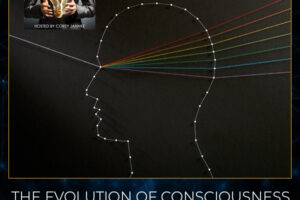“There is a crack in everything. That’s how the light gets in.” Leonard Cohen
“Doctors are such assholes!!” he blurted out after drinking about half of the tallest beer I had ever seen.
We were sitting in a lounge at The Yacht And Beach Club at The Walt Disney World Resort in Orlando, Florida.
I was lost in a daydream fueled by the ambient music and the memories of the day.
Our wives had gone to bed as the intense effort required to navigate small children through enormous theme parks had taken its toll on them.
I looked up from watching the bubbles float through my root beer.
Still emerging from the daze I was in, I responded slowly “Something on your mind my friend?”
“Did you know that doctors have one of the highest suicides rates of any profession?”
I DID know that.
As a veteran pharmacist, I had filled hundreds of prescriptions for struggling medical providers.
“Why do you think that is?” I asked, curious about his front line perspective.
“It comes at you from all directions” he began.
“The physical and mental demands of the job itself are enough to burn you out. Plus, its really hard not to absorb the problems of the patients you are treating, and some of them can just suck the life right out of you. But, the worst thing is the bureaucrats. Many of my colleagues have said ‘screw it’ and have gone into administration to avoid the pressures of the job, and the fear of being sued for malpractice. Now, they send me memos all of the time, telling me how to do my job, and I’m a jerk because I tell them to…”
I was somewhat unnerved by the intensity of his assessment. The despair in his voice made me rather uneasy as well.
I did my best to keep out of the way and allow him to expand his thoughts.
The more he spoke, the clearer the picture became, and the more I began to develop a purpose for my own life (helping people like him).
Our medical system essentially creates an awful paradox for practitioners of every kind.
PERFECTION is the expectation. Period. No excuses. We want PERFECT providers, and we rarely praise said perfection because it is expected.
Human beings are NOT perfect, and in the case of the medical provider, all of his or her imperfections become amplified by the system, and their own perfectionist personalities.
The penalties for imperfection are severe in and of themselves.
The provider is forced to set unrealistic expectations for themselves, and in the face of normal human efforts, often falls short.
When that means failure to provide a cure, the patient suffering alone is enough to make them feel helpless and hopeless.
Bring in the villains of the bureaucracy, and the situation worsens.
It is also important to note, that the same expectations that apply to the provider’s work life, roll into their home lives as well.
We expect a certain air of attainment, materialism, and citizenship from our medical providers.
We criticize lavish behavior, but at the same time view frugality as a sign of an unsuccessful career.
The end result is often a state of constant personal dissatisfaction followed by tremendous despair and learned helplessness.
(Simply writing about it makes me anxious.)
The more he spoke, then more I realized that he wasn’t prepared for where life had taken him.
It was not a fun place to play.
His talent and skills were all rooted in medicine (how to heal the sick).
He had no formal training in coping skills, life management, relationship building, or wealth creation.
He was a doctor, he was a father, a husband, a friend, a son, a brother, and yet in many ways he was a man on a deserted island.
He simply did not have the skillset to manage the issues he was dealing with.
He was facing his own demons, and mostly facing them alone.
His story made my heart ache.
I began thinking about all of the times when I felt alone in a crowded room, and how I had burnt my life right to the ground on several occasions.
I had been lucky.
I had discovered several mentors who helped me design a plan for rebuilding my life whenever I had turned it into a complete disaster.
I call it “My Phoenix Plan”.

I wanted him to have his own Phoenix Plan.
I wanted him to always be able to rise from the ashes when his life felt like a burning mess.
I asked him to consider that what the medical profession was doing was making him feel like he had no control over his own situation and circumstances.
We talked about a three part program for handing that control back over to him:
- Learn To Let Go Of Everything That Feels Threatened By Failure-Control is an illusion. One day, we will lose everything we hold dear today. Loss is inevitable. The stress is in the resistance to that fact. Once we mentally release whatever items, people, or circumstances life is holding hostage over us, we are free to think clearly about the best ways to manage our situation.
- Be Okay With Failure-Nine out of ten things we try simply don’t work. We make the best decisions we can given the information we have at the time, and most of those decisions turn out to be wrong. However, if we let go of shame and blame, we can learn from our mistakes and become less likely to repeat them.
- Simplify Everything We Can Possibly Simplify-Our lives are complicated and messy enough. It is important that we do less things better, and minimize our stressors and distractions.
I have given these tips to countless providers since that night, and although they are not a complete fix, they do open the door to creating a plan for a better life.
What strategies have you tried for rising from the ashes when you have gone down in flames?




